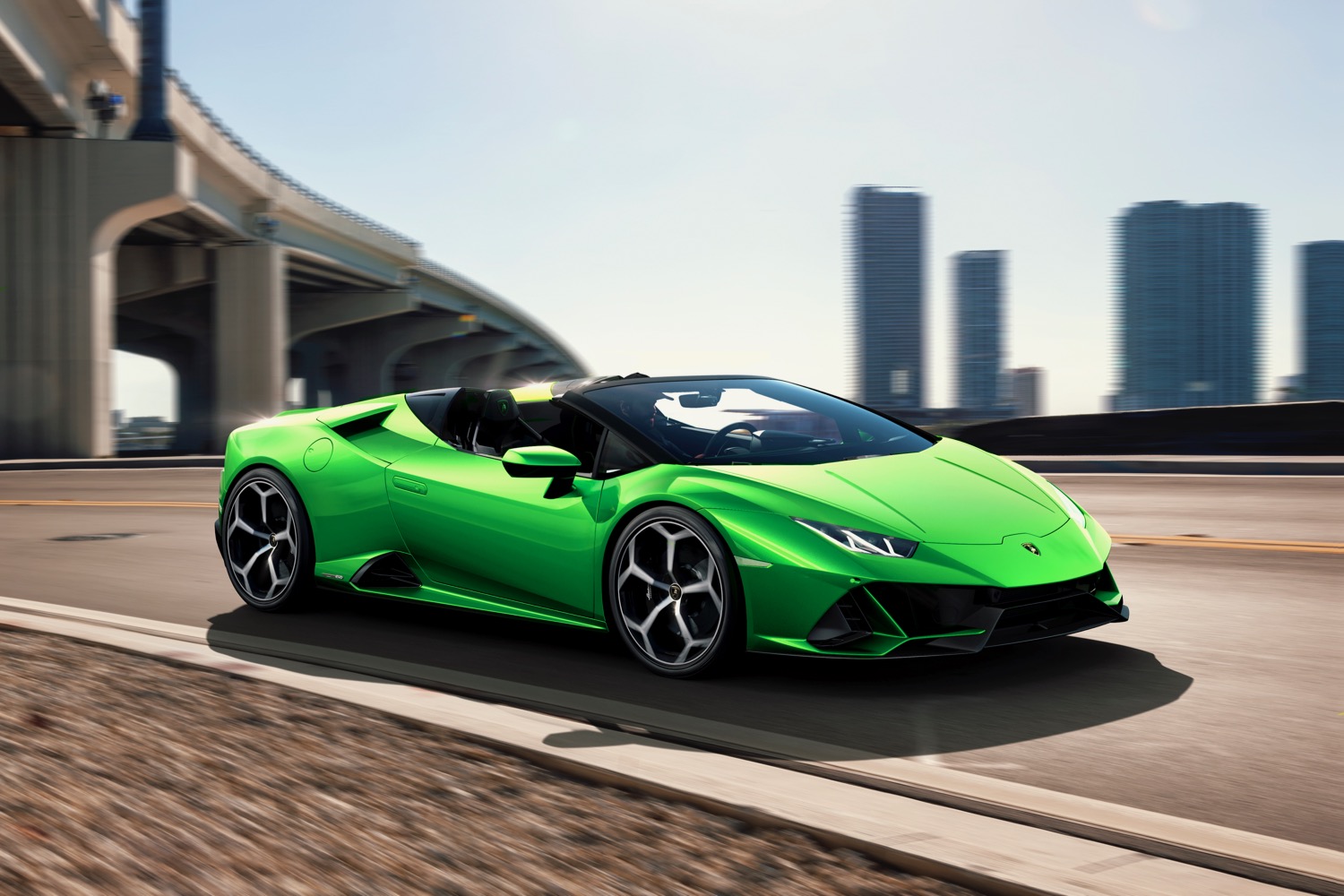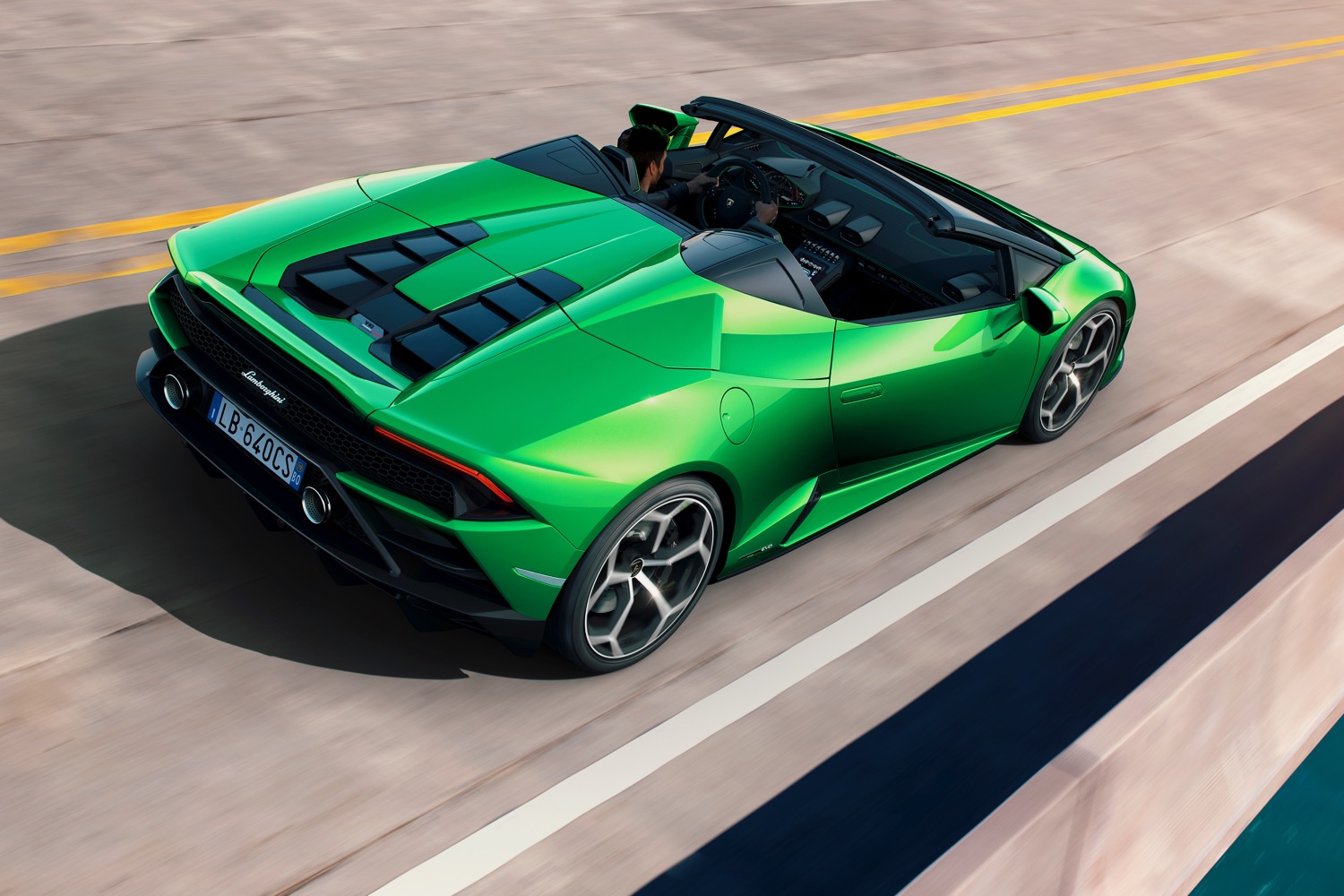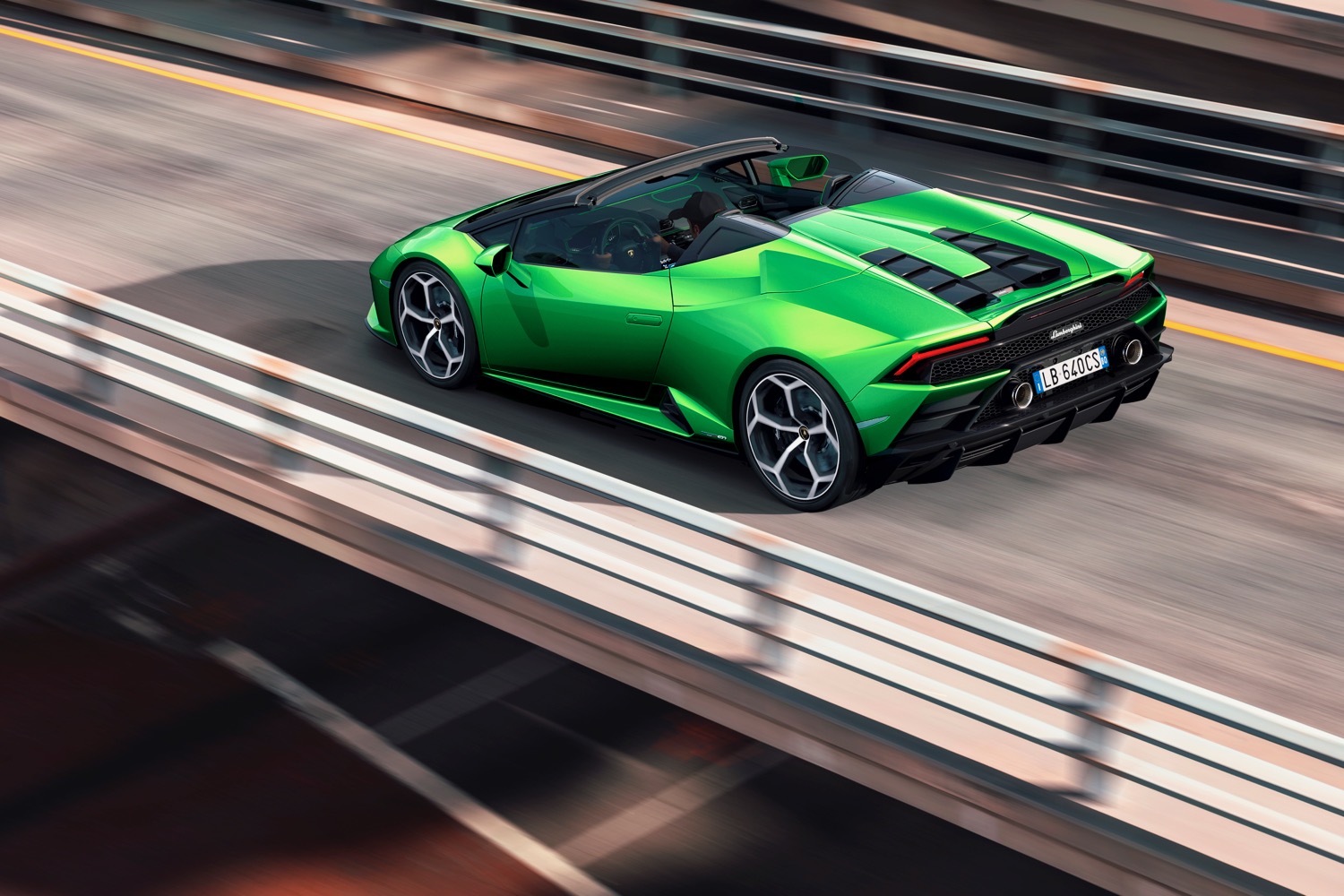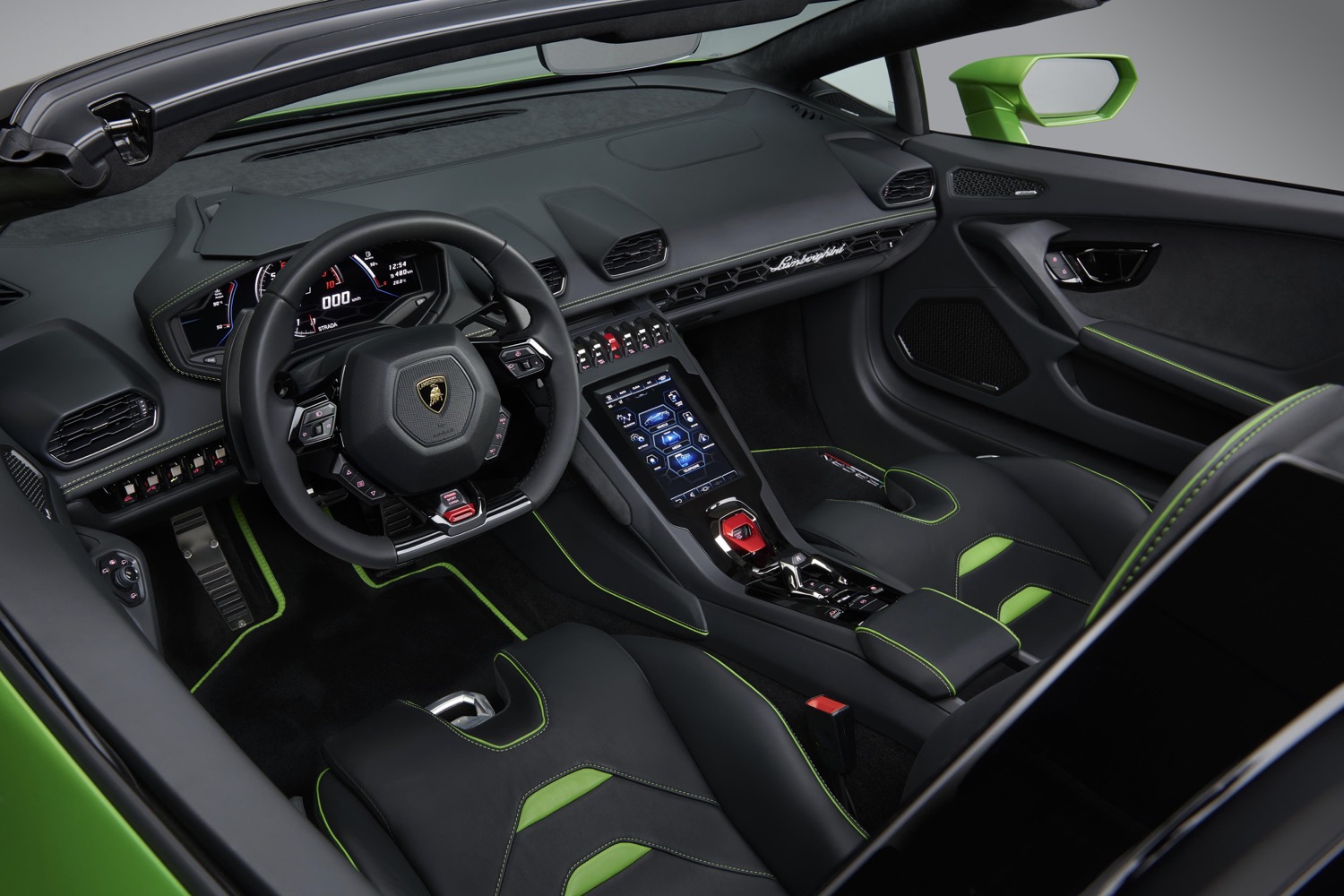The Lamborghini Huracán Evo debuted in January with a host of updates, including a more powerful engine and new tech directions. It was only a matter of time before the Huracán Spyder convertible got the Evo treatment, so it’s no surprise that it will makes its public debut at the 2019 Geneva Motor Show.
Like the Huracán Evo coupe, changes for the Spyder start with relatively minor tweaks to the exterior styling. A new front bumper is paired with a new rear fascia with prominent central exhaust tips, similar to the Huracán Performante, and a wide diffuser evoking Huracán race cars. A new rear spoiler completes the changes. The convertible roof can be raised or lowered in 17 seconds at speeds up to 31 mph, according to Lamborghini.
The 5.2-liter V10 engine makes the same 640 horsepower and 442 pound-feet of torque as the Huracán Evo coupe. The mid-mounted V10 spins all four wheels through a seven-speed dual-clutch transmission. Lamborghini claims the Huracán Evo Spyder will do zero to 62 mph in 3.1 seconds, which is 0.2 second slower than the coupe. Top speed is expected to be somewhere north of 200 mph.
The chassis benefits from rear-wheel steering and torque vectoring, which should allow for more precise handling. A suite of sensors called Lamborghini Piattaforma Inerziale 2.0 carries over from the Huracán Evo coupe. The sensors provide data to the car’s various systems, from the active suspension to the traction control, to help keep the driver from crashing. Also helping in this area is Lamborghini Dinamica Veicolo Integrata, a central computer that adjusts different vehicle parameters on the fly. It’s so smart that it can actually predict the driver’s next move, according to Lamborghini.
The Huracán Evo Spyder also gets the same upgraded infotainment system as the coupe, including an 8.4-inch touchscreen, gesture control, and Apple CarPlay. It’s one of the smartest supercars on the market.
The 2020 Lamborghini Huracán Evo Spyder makes its public debut at the 2019 Geneva Motor Show, with deliveries scheduled to begin this spring. Pricing starts at $287,400, or about $26,000 more than the Huracán Evo coupe. Expect the rear-wheel drive Huracán models to get the all-wheel drive Evo models’ tech upgrades at some point in the coming months.
Editors' Recommendations
- Lamborghini teases its first all-electric supercar ahead of Friday’s big reveal
- Geneva Motor Show canceled due to coronavirus outbreak
- 2020 Audi E-Tron Sportback, RS Q8 confirmed for 2019 LA Auto Show












